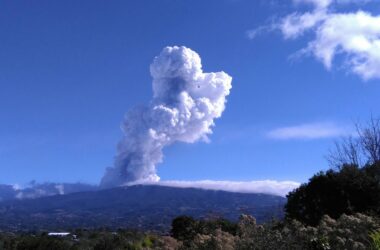Over the last several years, artificial intelligence (AI) has made huge strides forward in the areas of language modelling and translation. Recent improvements are exemplified by the accuracy of machine translation services such as Google Translate, the ability of devices like Amazon’s Alexa to interpret and respond to instructions given[Read More…]
Research Briefs
Expanding the surgeon’s toolkit: Machine learning in the operating room
Data science and machine learning, a branch of artificial intelligence (AI), may soon be making their way into operating rooms as integral parts of the surgical toolkit. The Feindel Brain and Mind Lecture Series tackled this cutting-edge development at its Nov. 2 event hosted at The Montreal Neurological Institute-Hospital. Pierre[Read More…]
Alert: Parasitic invasion in your intestines
If you have ever watched the television series Monsters Inside Me, you may be familiar with parasitic worms. Each episode features a dramatization of an infectious disease case, with an accompanying explanation of its cause. Cases dealing with parasitic worms range from a teenager infected with the parasitic worm, Trichinella[Read More…]
Modernizing investing: The rise of fintech in business lending
Suppose NeuroConnect, a fictitious company, requested a loan of $300,000 from October, a real financial technology (fintech) lending platform. The loan would be doled out over the course of 36 months to finance the acquisition of lab equipment like an electron microscope and an MRI scanner. October uses an automatic[Read More…]
Modelling sea level increases based on planetary warming scenarios
In the past few decades, human-driven global warming has left many questioning the future of the Earth’s oceanic dynamics and the implications of altering them. The Antarctic ice sheet (AIS), the largest body of ice on the planet, is retreating at an accelerated rate due to increased greenhouse gas emissions[Read More…]
Exercise in a pill for those with rare movement disorders
Spinocerebellar ataxia type 6 (SCA6), a rare neurodegenerative disorder, is characterized by severe, progressive movement and balance issues. It is associated with low levels of a neural molecule called brain-derived neurotrophic factor (BDNF), which guides the growth and maintenance of brain cells and overall plasticity. SCA6 affects one in 100,000[Read More…]
McGill researchers use drones to collect volcanic samples
Gasses emitted from volcanoes can provide crucial insight into their activity and eruptions, but gas samples are difficult, and often dangerous, to collect by hand. McGill scientists are among the first to overcome this issue by employing drones to collect samples remotely by piloting them into the crater of a[Read More…]
Honey, I shrunk the brains!
Aging is one of the few truly universal experiences, yet it is one of those things that no one really looks forward to. Along with visible signs like wrinkles and grey hair, however, comes a more insidious and harder-to-combat symptom: The decline of brain function. But according to a new[Read More…]
Mapping behaviour using genetic biomarkers
What if you could visibly lay out your entire genome sequence in front of you and see almost everything that explains who you are, from your eye colour to whether you’re an introvert or an extrovert? If this were true, we look at someone’s genes and calculate whether they will[Read More…]
As ice sheets melt, will Greenland mine?
While many are worried about large swaths of land disappearing under water as global sea levels rise due to melting ice sheets in the Arctic, Greenland finds itself with a different problem: Its coastline is growing. Scientists have observed that when Greenland’s ice melts, it runs down to the ocean,[Read More…]















